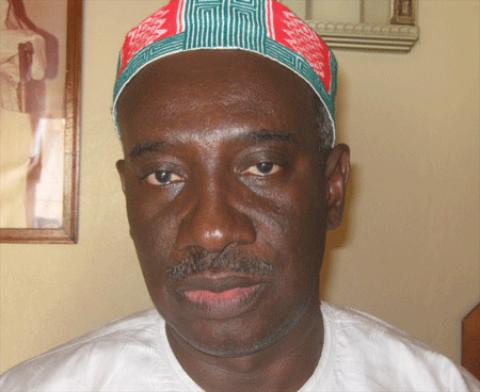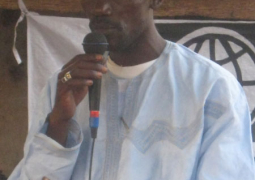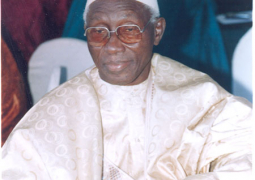
Chief
Justice Hassan B. Jallow has called on the newly-appointed Notary Publics,
Justices of Peace and Commissioners for Oaths to live up to the oaths they took
and execute their duties responsibly.
Chief
Justice Jallow made this call yesterday at the judiciary complex in Banjul
while presiding over the swearing-in of 31 judicial officials.
He
told the newly sworn in officials that they should discharge their
responsibilities fully and uprightly.
He
said the officials were selected from many to take up the responsibility.
The
Chief Justice assured them of his office readiness to organise an induction
programme in respect of the offices of Notary Public, Justices of Peace and
Commissioners for Oaths.
In
his vote of thanks, Kebba S. Fadera, one of the sworn in officials, urged his
colleagues to adhere to the oaths they took, saying any of them that willfully
certifies or propounds any false statement or document commits an offence and
is liable on conviction to imprisonment.
The
swearing-in ceremony was attended by the Judicial Secretary, Landing M. Sanneh
and coordinated by the Master and Registrar of the High Court, Buba Jawo, who
informed the officials not to authenticate any document when all the parties
are not present.
The
Notary Publics sworn in were Yassin Senghore, John B. Bright, Kebba S. Fadera,
Musa B.I. Susso, Habibou Sanyang, Mahtarr E. Njai, Lamin Darboe, Omar Cham and
Alhaji Amadou Touray.
The
Justices of Peace are Princess S. Drammeh, Lamin M.B. Jaiteh, Alhagie Massaba
Senghore, Cherno Nyassi, Jawo S.P. Jallow, Momodou Mulai Bah and Sering Mass
Ndow.
The
Commissioners for Oaths are Modou Musa Ceesay, Anna Maclean, Naffisatou Deen,
Sabell Jack, Ebrima Solo Jallow, Musa Krubally, Ebou Sowe, Pateh Sowe, Momodou
Lamin Manneh, Abdou Aziz Tunkara, Momodou L. Sanneh, Momodou L. Badgie and Sang
Mendy.
A
notary public is a third-party who does not only witness the signature of a
document but also to ensure the fact that all parties signed, did so before him
and willingly.
A
notary public is a public officer appointed by the Chief Justice and constituted
by the law to serve the public in non-contentious matters usually concerned
with estates, deeds, powers-of-attorney, and foreign and international
business.
A
notary’s main functions are to administer oaths and affirmations, take
affidavits and statutory declarations, witness and authenticate the execution
of certain classes of documents, take acknowledgements of deeds and other
conveyances, protest notes and bills of exchange, provide notice of foreign
drafts. Notaries charged fees for their services.
Justice
of the Peace: In principle is a volunteer of good character and standing in the
community who has been appointed by the Chief Justice through the Master of the
Supreme Court.
Their
role is mainly focused on witnessing affidavits and statutory declarations,
certifying true copies of original documents and certifying a person’s
identity.
Commissioner
for oaths and affidavits are persons appointed pursuant to the laws and they
are entitled to administer oaths and affidavits.
Read Other Articles In Article (Archive)
GCA Introduce Cricket in Western Region
Mar 30, 2009, 7:28 AM




